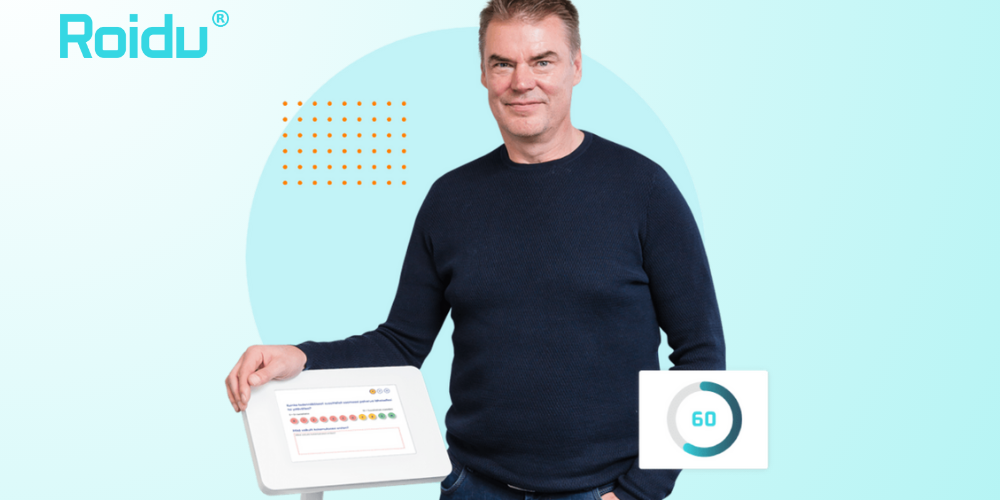Net Promoter Score, NPS®️, indicates the likelihood of customers recommending a company, product or service to their friends or colleagues. NPS is considered to be a highly effective and so far the simplest customer satisfaction indicator, proven to have a strong connection with organic business growth.
NPS is based on a comparative study of how likely different questions related to customer satisfaction can forecast customer loyalty, customer advocacy, probability to buy again or shift to a competitor. Of all the options, the question based on recommendation turned out to forecast the future behaviour of the customer most accurately.
What does NPS tell about your customers?
NPS is a single question that measures customer satisfaction by asking the customer’s willingness to recommend the company to others. NPS question is always asked in the same way: “How likely are you to recommend this company’s product or service to a friend or colleague?” The answer is also standardized with a scale from 0 (very unlikely) to 10 (very likely).
Customers are divided into three categories according to their answer:
Promoters: those customers that answer 9 or 10, are loyal customers that will return in the future.These customers will gladly recommend the company/product/service to others and create a positive company image to those around them. They help attract new customers, hold on to existing customers and even encourage them to buy more.
Detractors: customers that answer 0-6, are discontented and can damage the company’s reputation with their negative opinions. They should be promptly contacted – if possible – to correct the situation. This can turn the discontented detractor into a promoter. At least, it’s necessary to react to the arising problems for the future.
Passives: the customers to give 7 or 8, are fairly satisfied but indifferent. They are somewhere between a loyal and leaving customer, but don’t care enough about the topic. Turning them into either a promoter or a detractor is relatively easy, so it’s important to pay enough attention to customer experience and satisfaction in the future.
How is NPS calculated and what does the number mean?
NPS promoter index is calculated by subtracting the percentage of detractors from the percentage of promoters: NPS = (percentage of detractors) – (percentage of promoters). As a result, you’ll get a score on a scale of -100 (all the customers are detractors) to 100 (all the customers are promoters). The NPS score doesn’t provide enough information in itself; to understand the score, a little research on the average scores of the industry is often required.
Although NPS is only a snapshot of the customer’s present experience, it can be used to improve customer experience, increase customer loyalty and customer retention. It provides a simple and easy starting point to measure customer satisfaction, even though it doesn’t offer enough necessary information and understanding to manage customer experience.
The history of NPS
Fred Reichheld introduced Net Promoter Score to measure customer loyalty while working at Bain & Company. His research indicated a strong correlation between NPS score and company’s growth compared to competitors. After Reichheld had introduced his results in Harvard Business Review in 2003, companies started to use NPS as both an independent customer satisfaction indicator and a part of a broader customer satisfaction survey.
NPS is still one of the most popular customer experience metrics after 20 years. NPS is such an established customer experience metric that many organizations voluntarily share their NPS score on their websites or in their annual reports. However, it is advisable to also use other customer experience metrics or gather open feedback alongside it. Now is a perfect time to start paying attention to Net Promoter Score and we at Roidu can help you get started.
Interested in measuring customer experience?
Let us contact you or contact our sales team.

Lauri Viitanen
- Head of Customer Success
- +358 50 3423536
- lauri.viitanen@vitecsoftware.com

Johan Fabritius
- Head of New Customer Acquisition
- +358 50 330 1314
- johan.fabritius@vitecsoftware.com

Arttu Viitanen
- Head of Customer Solutions
- +358 50 5459598
- arttu.viitanen@vitecsoftware.com

Mika Hyvönen
- Chief Executive Officer (CEO)
- +358 40 869 1819
- mika.hyvonen@vitecsoftware.com
"*" indicates required fields



